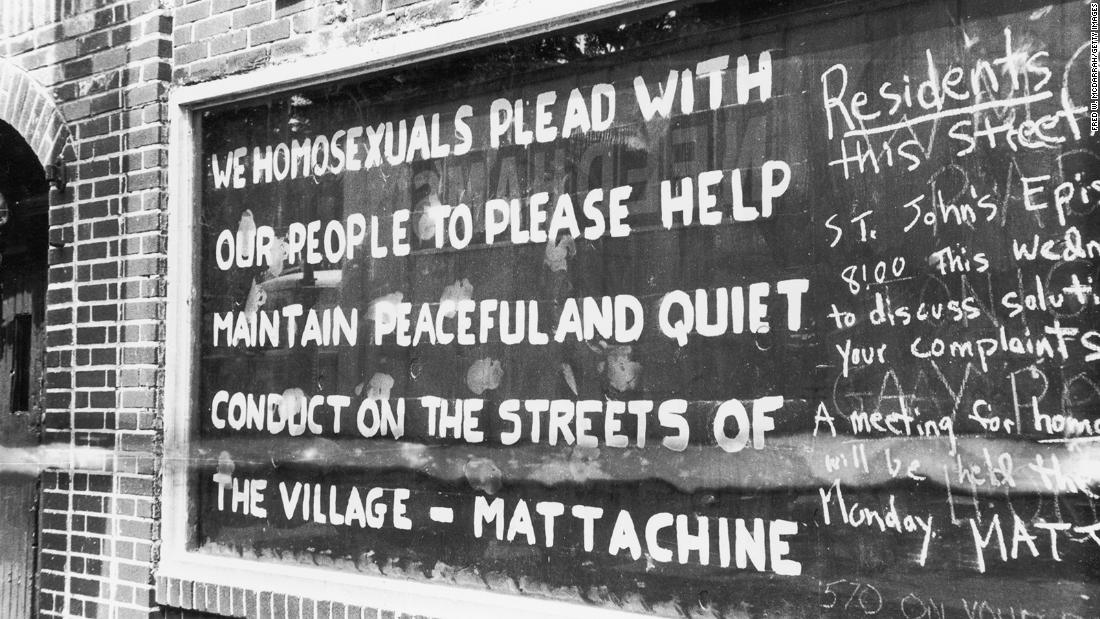
(Mattachine's message, 1969, by Fred W. McDarrah, CNN)
The Mattachine Society was an early gay rights group. They took a civil, "be quiet and behave yourself" approach to create social change. During the Stonewall Uprising, they attempted to control the situation. However, people in the gay community weren't interested in their tactics anymore. The shift in emotions caused the death of the Mattachine Society and the establishment of more radical gay liberation organizations. The new progressive unions caused by the Stonewall Uprising started the change in social dynamics by their activism.

(Mattachine's message, 1969, by Fred W. McDarrah, CNN)
“The Mattachine Society, formed a larger umbrella group called East Coast Homophile Organizations (ECHO), which organized these Annual Reminder events—reminders that gay and lesbian people were denied the rights of life, liberty, and the pursuit of happiness.” (Pitman 32)
"In the days following the Stonewall rebellion, people filled the boarded-up windows of the Stonewall Inn with political messages, announcements, and calls for action. While the previous entry represented the button-up-and-look-good views of the Mattachine Society, this object is reflective of more radical groups. This approach was direct and in-your-face, and they made abundantly clear that they were sick of hiding in the closet, and tired of submitting to the police." (Pitman 110)
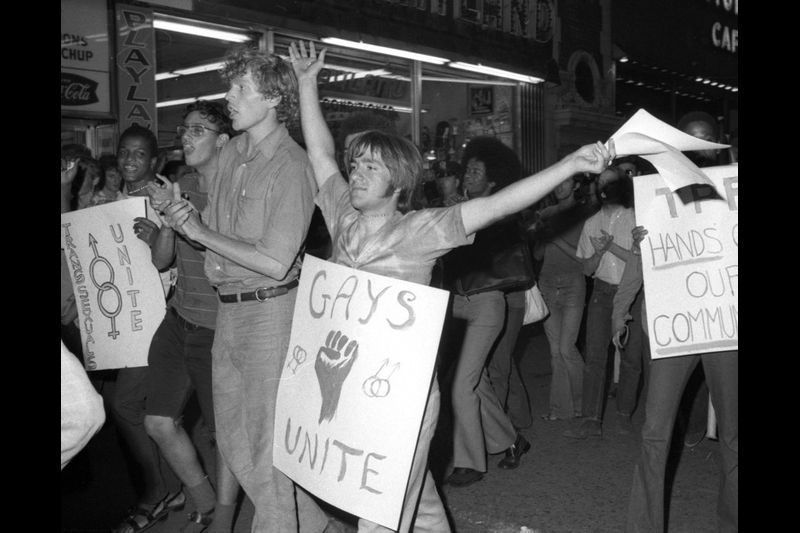
(Gay Liberation Front rally, 1970, New York Daily News)
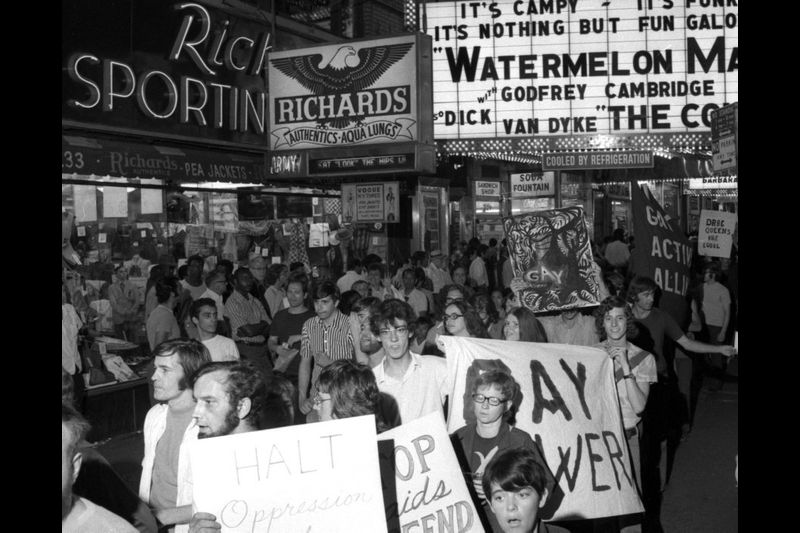
(Gay Liberation Front rally, 1970, New York Daily News)
Members of the GLF and GAA marched through Times Square in NYC.
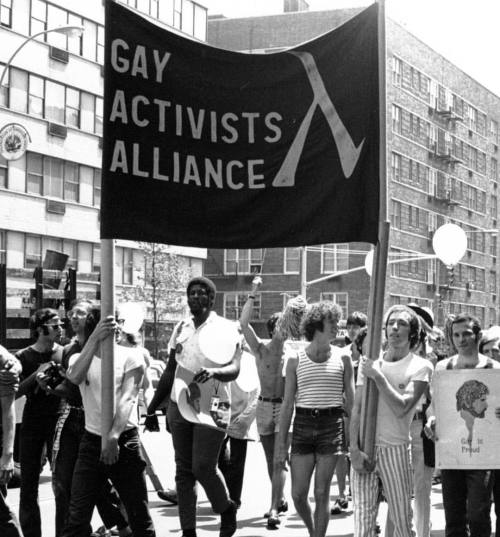
(Gay Activists Alliance memebers, June 28, 1970, by Kay Tobin, lgbt-history-archive.tumblr)
The gay community wanted to take action, giving way to the creation of the Gay Liberation Front (GLF). The GLF was more liberal compared to the Mattachine Society. They didn't only work towards gay rights but also opposed other social inequalities. The GLF organized political activities to pursue their goals. Later the Gay Activists Alliance (GAA) was also established with a pure focus on LGBTQ rights. They worked to modify discriminatory laws, and hold politicians accountable for the LGBTQ community.
"The GLF organized protests, marches, sit-ins, and other political activities. Compared to the Mattachine Society, the GLF was beyond radical." (Pitman 126)
"There were a lot of gay people, but they weren't open. Very few of them admitted to it till after the Stonewall. Then it was proud to be gay." (Seymour Pine, 2011)
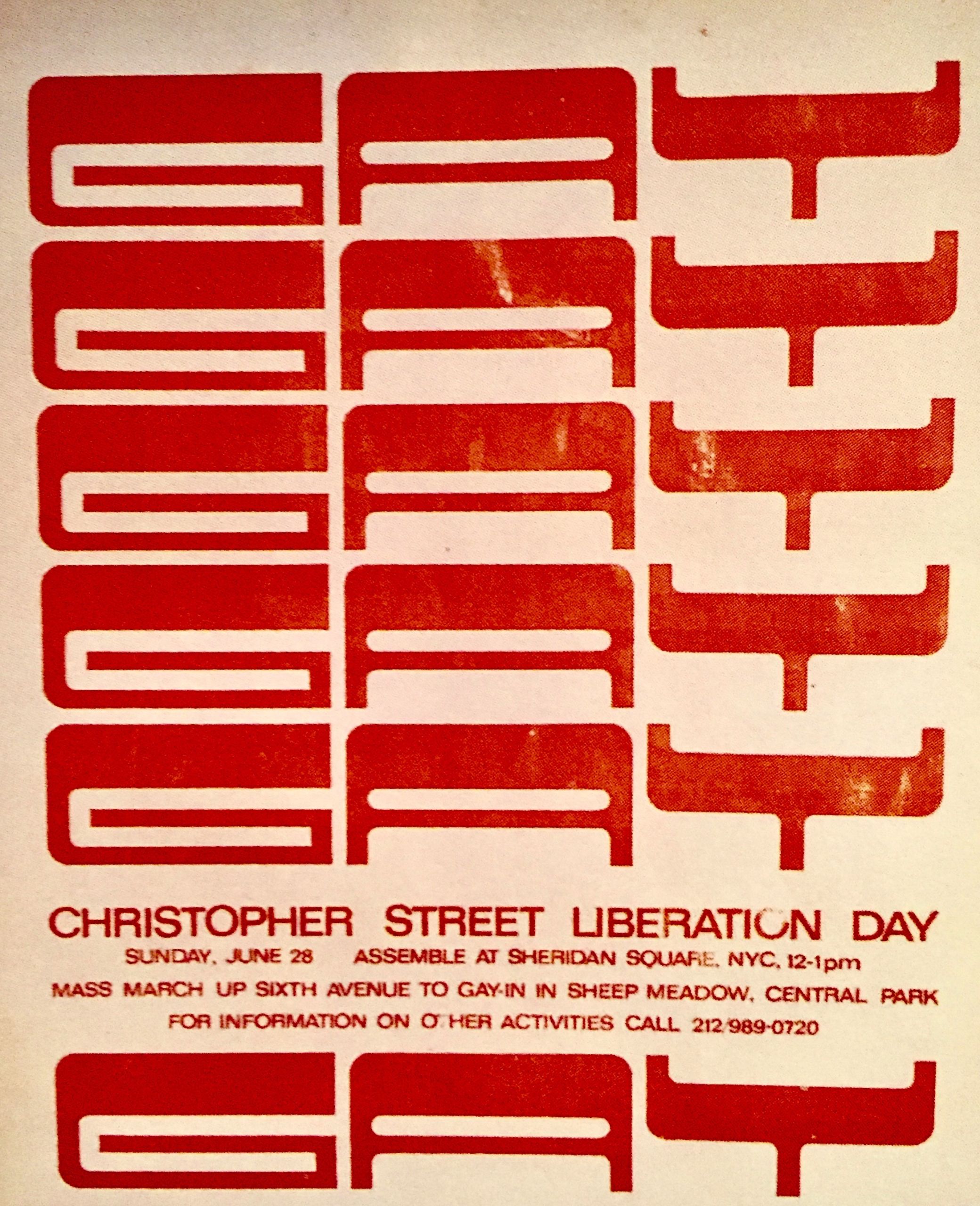
(Chistropher Street Liberation Day poster, June 28, 1970, Fred Sargeant)
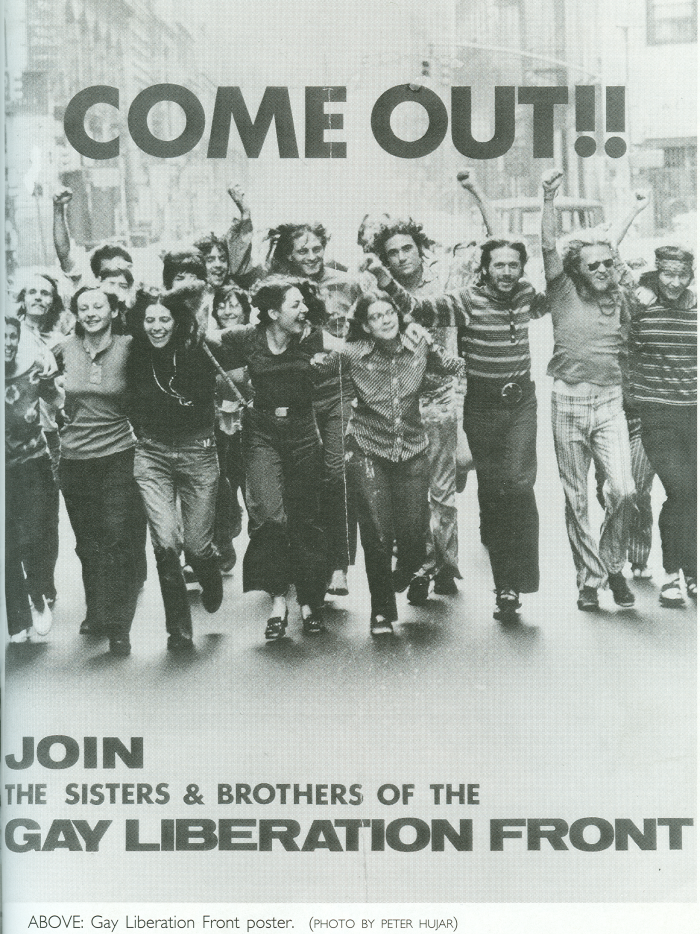
(Gay Liberation Front poster, 1970, Columbia University)
(Come Out Newspaper)